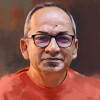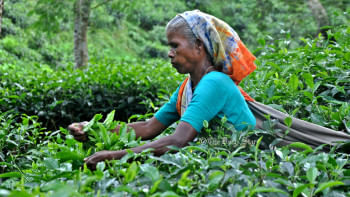Students down under look down the barrel
About 6,000 Bangladeshi students brace for bad times as recession strikes Australia and starts to bite deeper into a once solid economy of a paltry 21.7 million population. Feeling pinch of the slowdown in November last year, Kevin Rudd's government kept on trying every tricks laid out in the capitalistic economics to thwart the impact that already brought down Australian economic activities to its lowest ebb in 27 years. But international students, who turned the education sector into Australia's third largest export earner behind coal and iron ore, still stay out in the cold for not having permanent residency status. Australia has come forward with a number of major initiatives for its citizens to weather the fallout of global financial crisis as well as to safeguard its economy, which is being dragged into deeper-than-expected level of recession. Even in a desperate effort, Rudd's government handed Australians envelopes full of dollars-- about 3,000 Australian dollars in 3 phases-- spurring them on to spend and keep the economy alive in return. "When households and companies cut back on spending, the government should come forward and do the spending," Professor Sisira Jayasuriya of La Trobe University in Melbourne told this correspondent recently. A professor of economics, the Sri Lankan-born Australian however refrained from saying that spending is the solution to slowdown. "No body has gone through a financial crisis of this magnitude. On a global scale, nothing happened like this since (the recession in) 1930s," he said. "We must have to ensure global spending does not collapse." But this theory of spending seemingly fell into deaf ears, as the private sector-- from catering to aviation-- has launched massive job-cut over the last few months and people are gradually withdrawing into saving mode. The unemployment rate is at a four-year high of 5.2 percent, but the government's latest predictions show an unemployment rate of 7 percent by the June quarter of next year, leaving about 800,000 people out of work by the middle of 2010. But that prediction is almost certainly too optimistic following a slew of bad news internationally and job-cut spree by the private sector at home. Suddenly unemployed, Australians are queuing up in record numbers for dole but the international students, who are majority among short-time job-seekers, find it hard to support their tuition and living. "Presently, I'm exhausting my small savings to keep myself going," said Sabbir Mahmud, a Bangladeshi student who enrolled in a Melbourne university on a full fee-paying student visa. "I already lost my job twice in 3 months. I'm doing my third one at a lower pay rate. I don't know how I'm going to survive and continue my study if I lose this job too." Like Sabbir, most of Bangladeshi students arrive here on full fee-paying visa, as scholarships are scarce, only about 150 in total a year. Total fee for undergrad courses varies university to university, but it's well over Tk 60 lakh. Students do part-time jobs round the year to support the study as well as living in Australia, a tough job made tougher by the recession. Executive director of Australian Multicultural Foundation, Dr B Hass Dellal, admitted that international students are in for bigger challenge during recession. "When there's a decline migrant communities, specially the newer ones, are the first to cop," he said. The tuition fee from international students, representing 20-25pc of the total, is the bloodline of most of Australian universities. Many felt that universities should come forward now to bail out international students for mutual benefits. "I think universities should play bigger role in taking care of this issue. Community can play some role too," said Dr Dellal. With the downturn intensifying, speculations have also gained ground in Australia that the government is about to limit entry of international students, Bangladeshis in particular who demonstrated academic and personal excellence but came with poor economic record. "We're keen on having international students here," lawmaker Bob McMullan told The Daily Star at his parliamentary office in Canberra. But what he stopped short of telling that Australia wants wealthy international student for now. Students from rich nations like China and India are preferred in Australia just because of their better financial health, alleged many Bangladeshi students. Indian students now make up almost 18 percent of Australia's total foreign student population behind China with 23.5 percent. Meanwhile, Australian Council for Private Education and Training (ACPET) and national executive officer Andrew Smith recently stacked statistics on international students' remarkable contribution to national economy, encouraging the government to continue supporting the growth of international education by not reducing student numbers as part of migration reform. "Each international student contributes 28,920 Australian dollars (17,930 US dollars) in value to the economy each year," he said. According to ACPET, international students, and the associated visitation from friends and family contribute $12.6 billion Australian dollars in value-added in 2007-08. And total student related expenditure (spending by students and visiting friends and relatives) generates a total of 126,240 full-time equivalent jobs. Ironically though, job-creators are now first to face the threat of job-cut. Prof Jayasuriya however said that the government is not obligated to take care of the financial distress of those who are not residents. "But the stimulus package is going to indirectly help minimise job-cuts. If this short-term package is partially successful, students are going to benefit," he hoped. The global financial trend however shows that the recession has come to stay. The longer it stays the deeper they sink into abyss.

 For all latest news, follow The Daily Star's Google News channel.
For all latest news, follow The Daily Star's Google News channel. 



Comments